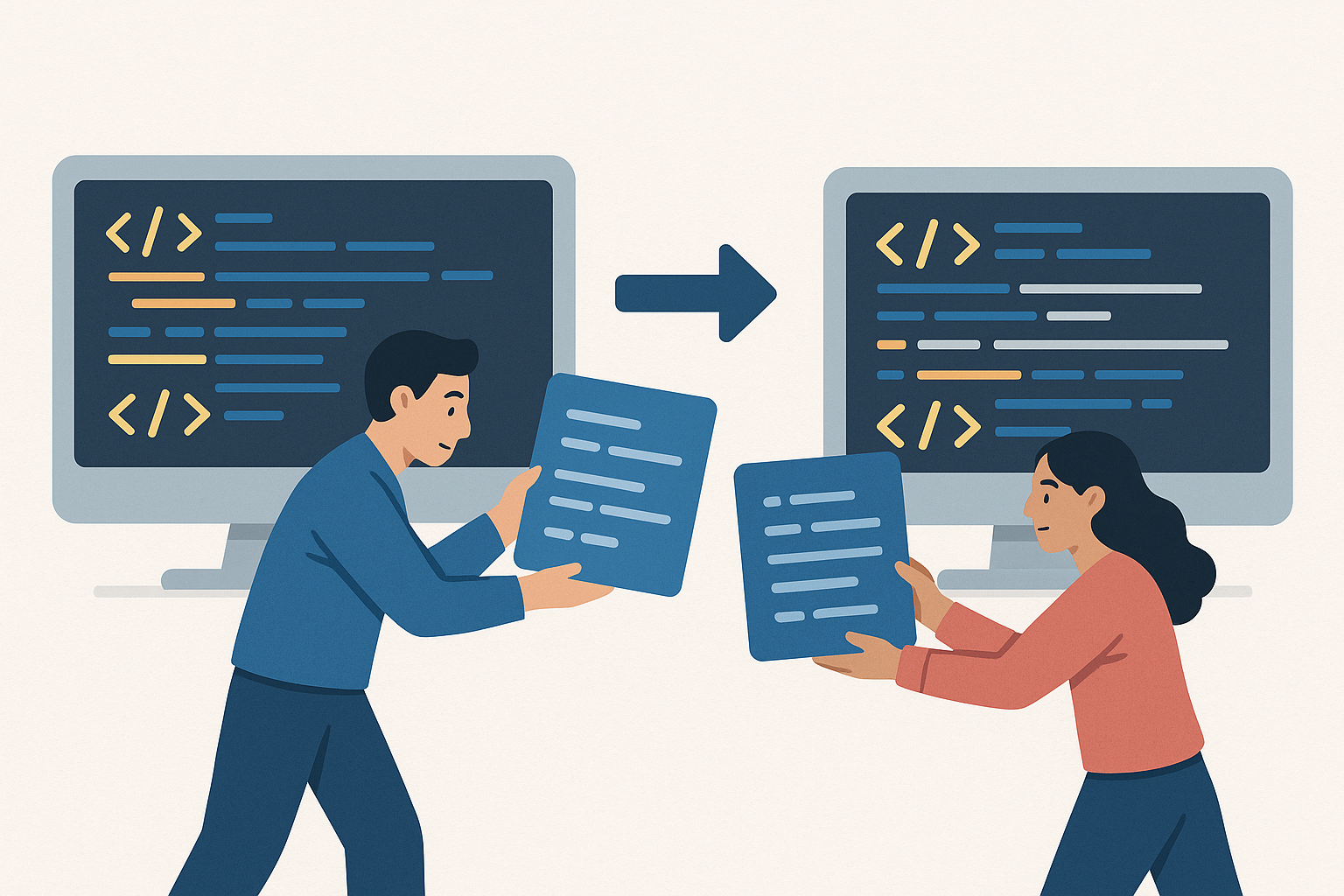Migrating from COBOL to Java is far more than just switching from one programming language to another - it’s a complete overhaul of how systems are built and maintained. COBOL is a procedural language, originally designed for batch processing and handling large volumes of transactions, particularly in sectors like banking, insurance, and payroll. Java, on the other hand, is object-oriented, requiring a fundamental redesign of the entire program structure to fit a completely different way of organizing logic and data.
Most COBOL systems are decades old. Over the years, they’ve often been patched and extended without proper documentation, meaning the only real “manual” for how they work is the code itself. This makes understanding, let alone modifying or migrating them, extremely challenging. These systems typically run on mainframe computers and rely on specialized components like custom libraries, file systems, and job schedulers - tools that are far removed from modern software environments.
Moving to Java usually also means moving to distributed systems or cloud infrastructure. This shift demands deep architectural changes and introduces new layers of complexity. Making things even harder, few developers today are fluent in both COBOL and Java. Many younger engineers have little to no exposure to COBOL, while experienced COBOL programmers often lack familiarity with Java or modern cloud-based technologies.
COBOL systems often include essential features for auditing, compliance, and security built directly into the platform. Replicating these capabilities in Java requires thoughtful design and rigorous validation.
There are tools that attempt to automatically convert COBOL code into Java, but they frequently produce inefficient and hard-to-maintain results. Manual rewriting tends to yield better outcomes, but it is slow, expensive, and requires rare expertise. And because COBOL systems often support critical business functions, any mistakes during migration can lead to major financial and reputational damage. That’s why these transitions must be done carefully, incrementally, and with extensive testing. We list the most common problems that occur during automatic conversion below and explain how Metabob can solve them.
1. The Code Becomes Hard to Read and Too Complex
When COBOL code is automatically converted into Java, it often ends up being long, confusing, and difficult to work with. Instead of taking advantage of Java's modern features, it just mimics the old COBOL logic. Metabob can spot overly complicated sections and suggest simpler, clearer alternatives.
2. Everything Is Too Tightly Connected
In COBOL, business rules, screen displays, and data handling are often bundled together. When this structure is copied into Java, it creates messy code where everything depends on everything else. That makes changes and updates hard. Metabob helps untangle these responsibilities, suggesting how to clearly separate them so that each part does just one job - making the whole system easier to manage.
3. It’s Hard to Test or Maintain
When one piece of code does too many things at once, it's nearly impossible to test it properly. This leads to fragile systems where fixing one issue can accidentally break another. Metabob detects these problem areas and recommends breaking them into smaller, testable parts - making the code more reliable and easier to maintain.
4. Outdated Practices Still Linger
Automatically translated code often uses outdated or inefficient ways of doing things. Metabob can identify these and recommend using modern Java features that are faster, cleaner, and more secure - like replacing old-style loops with simpler alternatives.
5. You May Be Creating New Problems
Just because the new system runs doesn't mean it's built to last. If you don't actively improve the converted code, you risk creating a fragile system that’s difficult to change in the future. Metabob keeps track of the code's health as it's written and flags issues early - helping teams avoid future headaches and build a more sustainable system.
In summary, migrating from COBOL to Java isn’t just a technical upgrade - it’s a full-scale system re-engineering effort. It demands rethinking architecture, resolving decades of technical debt, bridging a widening skills gap, and managing significant business risk every step of the way. Metabob plays a key role in this evolution - enabling engineers to move from “working code” to clean, maintainable, modern Java software.


